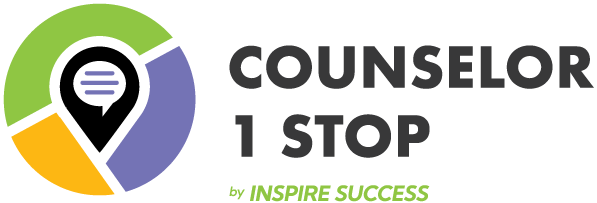Referrals
A referral is made to the School Counselor (SC) when a concern for a student arises. Possible sources of referrals may include self-referral by students experiencing a problem, concerned peers, parent(s)/guardian(s), teachers, administrators, and/or other school personnel.
BRIEF SUMMARY
A referral is made to the School Counselor (SC) when a concern for a student arises. Possible sources of referrals may include self-referral by students experiencing a problem, concerned peers, parent(s)/guardian(s), teachers, administrators, and/or other school personnel. Emergency interventions are required in those situations that need immediate attention, (e.g., peer concern about the personal safety of another student, death of a pet or family member, physical and/or sexual abuse). The SC may determine that other resources would be appropriate, including referral to other individuals within the school system, such as the school administrator, school nurse, and/or the special services personnel.
An outside referral may be necessary when an issue presented is beyond the scope, training and/or expertise of school district personnel. In the case of suspected abuse or neglect, the SC has a legal mandate to make a call to the appropriate authorities.
KEY POINTS
- Prior to the school year, school counselors should compile an updated list of outside referral resources for use during the school year. A list of agencies can be compiled by contacting United Way, the local Chamber of Commerce, surrounding school districts, etc. One way to do this is to send an outside referral contact form and letter to local agencies. It is also helpful to develop relationships with these agencies and become knowledgeable about the services they provide.
- Data collection is essential in the referral process. Student data collection can include attendance, discipline referrals, grades, and school nurse visits, documentation of observable behaviors such as the frequency, duration, and intensity of recurring behaviors. Information such as standardized test results and services the student has received and qualitative data such as student interviews, teacher narratives and anecdotes, observation, and behavior rating checklists (from parents, teachers, and/or students) can also be included.
RESOURCES
- School Counselor Referral Process Guide
- The School Counselor and Mental Health (ASCA position statement)
SHARED WISDOM
- (Added 12/5/23, Counselor Talk):
- Q: Looking for a recommendation for a good community mental health therapist.
- A: The best website in these cases is to use the Therapist Finder portion of Psychology Today. It provides a list of therapist based on whatever filters the person needs (specialty, insurance, ages, genders, virtual/in-person, etc.).
- Q: My principal and I are wanting to come up with or find a survey/questionnaire to give to teachers when they are wanting to refer kids to our school based therapy services to streamline the process a bit more. Does anyone have something they use or know where I can find one?
- A: I have developed one that I use when students are being referred for Behavior Interventions/Counseling. I ask that teachers fill it out before I see students who would rank a tier 3 for behavior issues. After it is filled out and returned to me, I send the parents a letter with the specific challenges I will be working with their child to overcome. Hope this helps. We call it the “BIRD” for Behavior Intervention Referral Data. https://docs.google.com/
document/d/e/2PACX-1vQs_1v_ dlCFw0xhIuhRTUTaetJWlPzNniIOSA Q9a0XN1OCO0_4j3OrKC- BR7qrOhwyc2H9_l44hflRQ/pub
- A: I have developed one that I use when students are being referred for Behavior Interventions/Counseling. I ask that teachers fill it out before I see students who would rank a tier 3 for behavior issues. After it is filled out and returned to me, I send the parents a letter with the specific challenges I will be working with their child to overcome. Hope this helps. We call it the “BIRD” for Behavior Intervention Referral Data. https://docs.google.com/
- Q: What are your school’s procedures when making referrals to the school mental health therapist?
- A: The school counselor reported that they have continued to use the same process that has been used for academic concerns. When they discuss the students, they gauge if the issue is academic or emotional. With the increase in attention to this issue, the school counselor has been shifted to providing the Tier 2 and 3 intervention. They are no longer providing classroom SEL lessons, which was a frustration.
- A: This school has just started the process and use the framework denoted by the National Association of School Psychologist. I have attached the information that was shared with me. From Counselor Talk (May 2019)
- Since an outside referral may imply a financial obligation on the part of the district, refer to your local school board’s policies and procedures for further clarification. When the school district provides a list of available resources, individuals need to realize that this is not an endorsement of any particular resource.
